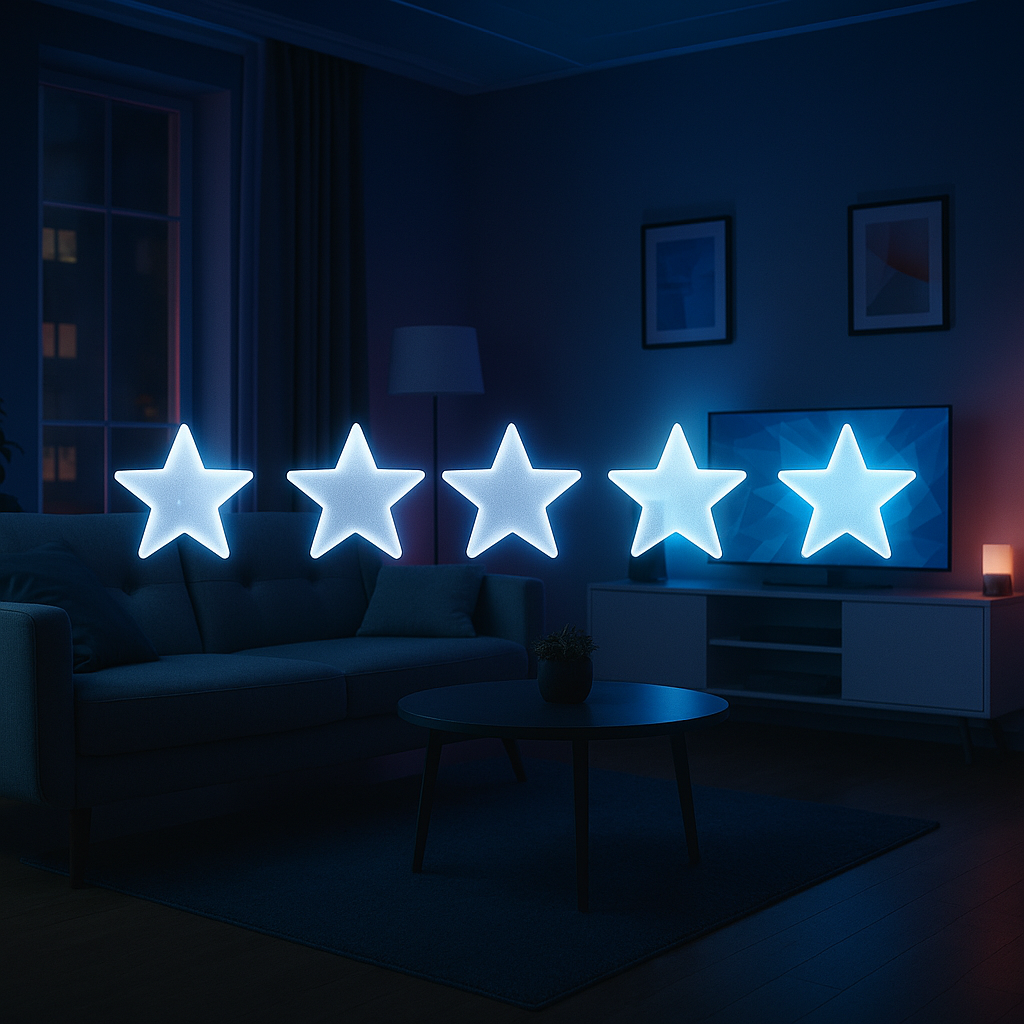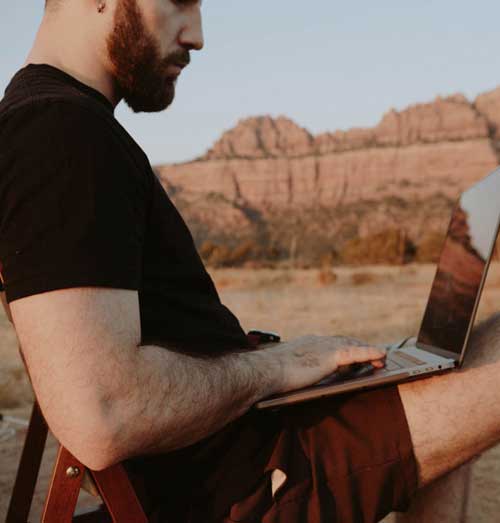Gain valuable Airbnb guest screening insights from Leo Walton at Superhog to protect your property.
In this episode of the Short-Term Rental Riches podcast, we sit down with Leo Walton, co-founder of Superhog, to talk about effective guest screening and risk management for short-term rental hosts.
Leo brings a wealth of experience, from avoiding fraudulent bookings to preventing damage, Leo shares key strategies that every short-term rental host should have in place.
Discover how to prevent unwanted guests, minimize damage, and protect your Airbnb or vacation rental property with the best practices in guest verification and fraud prevention.
In this episode, you’ll learn:
-
Guest Screening Reduces Damage Risk by Tenfold: Learn how Superhog’s guest verification tools help prevent bad guests from booking your property.
-
Prevent Credit Card Fraud: Leo Walton discusses how to avoid fraudulent bookings with effective guest screening processes.
-
Instant Book and Risk Management: Understand the importance of combining guest screening with instant bookings to increase occupancy without increasing risk.
-
Deposit Waivers vs. Damage Waivers: Discover how offering these protective measures can help safeguard your property and increase your revenue.
-
Fraud Prevention and Airbnb Direct Bookings: Find out how Superhog protects hosts from the rising threat of credit card fraud and unwanted guests.
Thanks for tuning in to this episode of the Short-Term Rental Riches podcast! We hope you found Leo Walton’s insights on guest screening and risk management as valuable as we did. If you’re a short-term rental host looking to protect your property and minimize risk, Superhog’s tools and strategies can make a big difference.
–
Take advantage of StayFi’s special offer for our listeners:
👉👉👉 Exclusive Offer Get 50% Off Your First 3 Months with StayFi 👈👈👈
–
Need help managing your short-term rental and you don’t want to go it alone? Shoot us a message here and we’ll see if we can help.
Are you enjoying the podcast? Please subscribe, leave a rating and a review, and share it! This helps us reach others that may find the info helpful as well.
You can find all of our links here including our recommended resources, short-term rental playbook, Instagram, and more!
Click here to view the transcript
Welcome to Short Term Rental Riches.
We’ll discuss investing in real estate, but with a specific focus on short term rentals.
Quick, actionable items to acquire, manage, and scale your portfolio.
I’m your host, Tim Hubbard.
Hey there, short-term rental owners.
Looking to boost your revenue and keep your guests coming back?
I know you are.
Say hello to StayFi, the innovative platform that lets you gather guest info and market directly to them.
How does it work?
Well, we’ve talked about this before.
Your guests log in to your Wi-Fi via a branded landing page you can easily create, showcasing your guidebook and other commissionable activities.
After your guests leave, you can use StayFi’s email and SMS marketing tools to keep your property top of mind and secure those direct bookings.
We’ve built a solid list of subscribers using StayFi, my personal portfolio.
Now we can turn one quick email or automated series into dozens of direct bookings.
Use the code RICHES when you sign up for StayFi.
It’s time to start converting first time visitors into repeat guests with StayFi.
Well, welcome back everyone to the Short Term Rental Riches podcast.
I’ve got another fabulous guest today, Leo Walton from Superhog.
We’re going to be chatting about risk management.
We’re going to be chatting about those sometimes unwanted guests and how we can prevent them before they actually check into our properties.
And I’m sure the conversation is going to go in several different ways.
So welcome to the show, Leo.
Happy to have you here.
Thanks, buddy.
Nice to see you.
Honored to be here as a guest.
Yeah, I’m excited to have you.
It’s always great to talk to industry experts.
We were chatting just for a second before the call and talking about how quickly this industry is changing and it’s really like, we got to look at it like doggy years.
And you’ve been with Superhog for a long time, which in real years is like decades.
So can you tell us, you’re the co-founder of Superhog, right?
Correct, yeah, I’m one of the co-founders.
So I met my now co-founder, Humphrey, all the way back in 2011, when we were both part of the team that helped build, grow and sell One Fine Stay to the Accor Hotel Group.
One Fine Stay being one of the early tech-enabled property managers working to grow at record speed within this new vertical.
Met him, he went off to start the forerunner of Superhog, which was GuardHog Insurance, selling lines of home cover to short term rental operators and hosts.
And I jumped on in 2019, when Superhog was ready to be born as a piece of software to help screen guests alongside, still providing financial protection.
And since that time, we’ve really tried to dominate the screening space by adding as many checks as possible that our operators want, things like sex offender check, ID verification software, background checks, but at the same time, also providing extra tools as well.
So things like deposit capture and damage waiver collection, we can do all of that stuff.
And that’s really just evolved out of the journey we’ve been on since 2019.
As I think you know, from talking to me before we started, I’m an industry junkie.
I love it.
And I put really simply, I think what Superhog is here to do is to help enable trust in the short term rental industry.
So help guests, hosts and operators all transact more, do more business and do it safely.
Awesome.
Yeah.
I’m looking forward to digging in deeper here.
There’s a lot of little pieces in there that go into this risk management piece.
And before we jump in, I think this is, you know, sadly, this is one of the reasons why a lot of people probably don’t get into short term rentals.
They think, oh, I got this, especially if it’s a property that they have a personal connection with, maybe one they’ve been staying at.
They’re like, I don’t want people having parties in my properties.
I don’t want them destroying it.
Luckily, there’s a lot of ways to manage that risk.
So why don’t we do this before we get started in some of those ways, most of which Superhog is doing like deposits and the screening and all that good stuff.
Do you have any kind of like stat or background info on like, you know, how much fraud there’s out there these days and any sort of stats around it?
Yeah, there’s some interesting ones for sure.
So I guess the first thing to say is that you’re exactly right.
When you say, think of all the people that are put off by coming into the industry.
So that’s your first blocker to growth, right?
Who are they?
If you’re using the management model to grow, who are the hosts you can’t even find, right?
Because they would, they’re just, they only want to use it themselves because they don’t trust anyone else not to trash it.
And there’s 50 weeks a year where it’s sat their idle.
There is still so much of that supply out there, right?
In holiday town where people don’t really, they feel like they don’t financially need to give their home to a manager.
So they won’t, or how many people who want to, could be hosting themselves and getting that extra revenue themselves because it would be useful, are not doing it.
Our data suggests that if you screen a guest before they arrive, you reduce incidence of damage tenfold.
So that’s the first thing, right?
You significantly reduce these problems even coming to your door.
I suspect in the most part, that’s because people are deterred from going through a screening process if they know that they’re coming with the intention to host a party, sell tickets and have 2,000 people turn up to a rave.
They’re also very unlikely to book it if they’re going on a bachelor party with their friends that they know are terrible and likely to drink a lot of booze.
And more importantly, much less likely to do a fraudulent transaction.
And there are obviously tools within what we do to help reduce that.
And we can send the evidence of the screening process to a credit card company to help fight a charge back.
But in terms of stats on fraud, unfortunately, I can only tell you it’s going one way.
It’s going up.
It’s a moving target.
People find different ways to beat the system and apply for a charge back.
There’s friendly fraud where you come and pretend that you were just unhappy with the service, and that’s why you’re refusing to pay.
And then there’s actual credit card fraud where it wasn’t you and somebody used your details.
It’s on the rise.
It’s on the rise around the world.
And unfortunately, unless you have a really, really robust website and even then you’re not immune to it, you are very vulnerable.
So we found that often a jumping off point and where people realize they need to start looking at tools, additional tools is when they start to look at direct bookings.
That’s one of the points people start to look at.
But yeah, so like I say, 10-fold reduction in damage is probably the headline one.
And that is why we only provide protection.
We only provide our protection products if we’re screening a guest.
It can be actively, it can be passively, it can be a background check without the guest knowing they’re going through it.
But we have to do some level of screening if we’re going to provide protection.
Good stuff there.
Well, the protection, that kind of comes afterwards.
So let’s dive into the screening part first, because this is what we all want and need really, is to prevent these bad guests from checking in, or people that don’t have the property’s best interests in mind.
And I think because this industry is, I don’t want to say maturing, because I feel like it’s still just really young, still and changing a lot, but it has evolved a lot more than 10 years ago.
And with any evolving industry, people come along and they figure out little ways to sort of take advantage, right?
And so we want to prevent all that.
And so the first step is screening guests.
So can you tell us a little bit more about ways you’d recommend screening guests and then also how Superhog can help us do that?
Yeah.
And I think we’ll probably start with the premise, and I think you’re exactly right to mention it, is that the growth of the industry means that you’re now able to take bookings 24 hours a day.
And most hosts, the vast majority, use Instant Book.
That’s been a really slow process of moving to Instant Book.
Often, it was in choir, and that creates a blocker, because then you have to ask that person why they’re coming.
So in the desire for greater conversion and more bookings, people have relaxed their stance on that.
And so as a consequence, if you’ve got 100 properties, they can be being booked 24×7.
So you could wake up to 10 bookings, right?
That’s brilliant.
You know, your properties are working for you while you’re asleep, but new types of risk evolve, right?
Out of that way of doing business.
I always go back to this idea that when we were kids, and I’m not going to reveal my age too much, but my dad would book the holidays, and we would find it in a magazine or a brochure, and we’d probably go back to the same property four or five years in a row, because you’d build a relationship with that owner, and they’d be there to give you the keys when you arrived.
So face-to-face check-ins.
When I started in One Fine Stay, every check-in was face-to-face.
There’s no way we could have convinced a host to give us their property without saying we were going to meet that person, look in the whites of their eyes.
That has now taken a big…
Most people use remote access keyless entry systems.
Brilliant means, again, you can do it at scale.
You’re keeping more revenue per booking, but new types of risk evolve because of that.
So that’s the premise.
The second thing is, if you’re meeting people in the flesh as well, you’re not doing a biometric check on their passport in person.
That’s not happening.
That’s something that happens before they arrive.
So even if you are doing face-to-face check-in, you still probably want tools at your disposal that can make sure that you’re protected when it comes to damage and fraud and things of that nature.
So I would say without having a risk management strategy, you are being very fatalistic about damage and you will get caught out at some point.
It’s the Warren Buffett quote.
Apologies if anyone’s heard me say it before, because I always seem to come back to this, but it’s where this idea is born for me, is it’s only when the tide goes out that you can tell who’s been swimming naked.
And so without a risk management strategy, you’re going to get caught out, right?
To put a Superhog hat on for a second, we can provide a range of services that can help de-risk from a screening perspective.
One is we can do checks on the validity of people’s emails, their mobile phones, their names against our database.
All of those details against fraud databases around where people have used false information, then done a charge back or used it to launder money.
All of these APIs are built and done.
We can do a sex offender check.
We can then also do ID verification.
So there’s a whole range of things you can do.
Be specific.
It goes back to that point about having a risk management strategy.
Your market, if you’re in a party urban market, you probably want to do everything.
If you’re in a holiday market where it’s families and it’s one week bookings all summer, you can maybe be a bit more relaxed and a bit more tailored.
We can do all our checks as well without the guests needing to be bothered.
So we can just do checks on their data.
If you’re worried about guest friction, you can remove the need to do checks in general.
But what I like about doing an interactive check with a guest is you can then take a credit card deposit, which is another check you’re doing on their credit card, as well as getting the money you need.
Or you get their credit card details and you charge them a deposit waiver, which is a good revenue driver for you as a host.
Also another way of checking that they’re serious about the booking.
You know, there’s lots to unpack there.
Taking my Superhog hat off, I’d say the most important thing about the process is that you are learning a bit more about who your guest is.
So, you know, if you use any sort of screening tool, you’re getting a real phone number, you’re getting a real email address.
That’s a marketing opportunity.
So, you know, we talk about, and you introduced this as a topic about how we keep bad guests away.
Yeah, that’s part of it.
But also how do we enrich your relationship with your good guests?
Well, it’s being able to find out, give them a phone call, send them a WhatsApp message, send them an iMessage.
Why are you coming?
Why are you here?
And then leave some champagne in the fridge if it’s an anniversary.
Leave some kid stories if they’re coming with their young children.
You know, there’s an opportunity there to kind of hack that getting to know them process and do things for them at lower effort than you would if you didn’t, if you weren’t collecting that information.
So there’s a marketing opportunity for sure in that screening process.
And one thing that’s super important is making that screening process as nice as possible and as quick and as intuitive and streamlined as possible so that people don’t get irritated by it, because what we’re not trying to do is create friction with your good guests.
We’re trying to weed out your bad guests.
Right.
I like what you said too.
A lot of times just having these processes in place weeds out the guests before they even try to book.
There’s a lot of things that we can do aside from just screening that are going to help.
It’s the combination of all the things.
And another thing you mentioned is just finding out why they’re coming to stay at your property.
That’s a good one.
So if you’re out there and you don’t have a way of asking your guests, obviously there’s multiple ways to ask that.
You want to do it with a hospitality approach, right?
Not, why are you staying at my property, you know?
So that’s a great question to ask.
Another point there…
It’s good data too, right?
It’s good data.
So you can take that really hand-held direction, or you can just think about that as a good data to have for when you’re sending out text messages to say, hey, have you booked anything where for Thanksgiving yet?
We’re running a 10% promotional discount.
Like, do you want to come back?
One host I know that works with us collects the address during that checking process.
And the day that guest arrives at one of their apartments, one of their cabins, they have sort of cabins in the woods and things like that.
They send them a postcard, say thanks for visiting, so that when they arrive back home, the first thing they see is a postcard from the host.
Like just little cool touches like that, that just help elevate the experience.
That’s where STR beats hotels every single time, right?
And we gotta lean in to that stuff, because that’s what being a wonderful host is.
Yeah, that’s an awesome, awesome touch there.
You mentioned briefly about direct bookings, and this is really where we open ourselves up to even more risk.
Obviously, we can have unwanted guests, I guess you could say come through any channel, but some channels are a little more difficult.
And we need to be on other channels, and we need to have our direct booking website and everything set up.
We talk about that a lot on this channel.
But what’s your take on, you know, like we’ve had a lot of trouble with booking.com, for example, things that we figured out, but more credit card declines and stuff like that.
How would you sort of rank OTAs, I guess, if you were in terms of potential risk?
I think there is a lot of value to be had from working with an OTA that is the merchant record.
Because then, you know, if something happens and there’s a fraud, a credit card fraud, it goes through their system, it doesn’t go through your system.
So that’s really important, I think, is making sure that you don’t, if there’s any way to try and reduce that charge back risk.
I think where you work with an OTA and that gets passed through to you is slightly more challenging.
So that’s the first thing I’d be assessing with OTAs.
The OTAs generally feel like their job is to get you the guest, not to screen the guest for you.
And that is generally true.
But if you look at, are they getting me the right guest?
Sorry, are they getting me enough guests?
And that probably is the most important metric with an OTA.
How you then choose to make sure the booking is secure, I think squarely falls on you as an operator.
And you should see it that way.
You should go, I’m going to build a direct booking website, but I have to be really hot on the safety of it.
And I definitely have to be using screening tools on top of it.
And I’m going to play with all these OTAs that are useful and get me to guess.
But again, I’m not going to assume that they’re going to get me anything else apart from the guest.
They might bring me a bachelor party.
They might bring me a fraudulent guest.
I have to weed that out for myself, but I’m just trying to put them all into my funnel and aggregate them down.
If you take that approach, you trust every guest that comes, but you need to verify that.
So trust but verify.
I think you’re on the right lines.
But again, sort of as a, I guess, the first incident, like who’s taking the risk there when it comes to the credit card?
Because that is the most common thing, unfortunately, at the moment, is just credit card fraud.
Where you’re in a market where credit card fraud is specifically an issue, I would 100% be doing ID verification because it’s just an extra step in the process.
And then that information can be shared with the credit card company and say, look, because your client was here because we have their live selfie and picture of their ID.
So I’d be thinking about it in those terms.
When it comes to damages, I think they can come from anywhere.
Bad guests can come from anywhere.
And again, like I say, just view it as the OTA is the money pit.
That’s where I get it.
The marketing channel, it’s not a brand that has my best interest at heart.
I think most OTA is probably quite rightly in their own, even when they’re thinking about their own strategy, are very guest centric.
The supplier is the supplier, but I think they’re very guest centric.
And I’m sure as a host yourself, you’ve experienced that.
Certainly.
We’ve experienced about everything you can experience, I think.
Just to step back a quick second here for anyone that’s out there and that is only on Airbnb or that is only on a couple channels where the payments are being made on your behalf.
When you step off of that, you should, as soon as possible, we have to accept credit card payments.
And so what Leo is referring to here with charge backs is where someone literally can stay at your property for the whole reservation.
They can leave and then they can dispute it with the credit card company.
And we know that the credit card companies almost always are siding with their customers.
And so they will refund the whole amount, leaving you with zero.
And so this is something that’s happening.
It’s been happening for a long time.
And we got to be aware of it and protect ourselves with tools like Superhog.
So collecting credit card payments, you know, most people in the industry are using Stripe here in the US anyways.
The deposit is a trickier one, though.
So it’s pretty easy to get set up and accept credit card payments.
But one of the things we ran into, for example, with deposits is that you can only hold them for a certain amount of time, and then you need to reauthorize them.
And so if you have someone, you know, from what I recall, it was seven days.
And so if you have an eight day reservation, that means that you need to reauthorize it or capture that deposit later.
So it’s not as easy as hotels really.
You know, you check in and they’ve got all figured out there’s reason why hotels do it too, right?
Because we got to have this.
So maybe you could speak about that a little bit.
And then the alternative to that, which are the deposit waivers, which I believe you guys offer as well, Leo?
If you’ve been listening to the podcast for a while, then you know that I’ve been managing my properties virtually for years and years.
My team and I have managed thousands of guests.
We’ve learned a ton and I’m really happy with the progress and the growth we’ve made.
In fact, we’re now big enough to help manage your properties as well.
Our team has a ton of experience from the inner city apartment to the large lakeside retreat.
We’ve worked with all types of properties across the nation.
We’ll help to take the management workload off your plate while earning top revenue and excellent guest reviews, all while charging an industry low fee.
If you’d like to find out if your property fits with our program, just head to strriches.com.
There you’ll see a property management button.
Again, that’s strriches.com.
Just click on the property management button and we look forward to chatting with you soon.
Yeah, so I think doing deposit capture or waivers on your own is challenging.
Again, because it’s an extra arbitrary step and unless you’re set up, you’re going to have a different process with each OTA and it’s going to be mind-boggling.
So the advantage of using someone that can aggregate them like ourselves or anyone, but like ourselves here is that then we will take on the risk of doing that piece of work.
So for example, if you get a charge back where we’ve captured a deposit, we get a charge back where we’ve captured a deposit, which also happens, right?
So it’s not just accommodation fees that get charged back.
It’s also deposits when you try and capture them, by the way, that risk suddenly becomes Superhogs because we have thousands of deposits that are captured every week.
And so we’re used to that risk, but it does happen, gets wind that they’re going to be charged for something they’ve broken and they do a charge back.
So if you’re on your own doing it, you’re really quite exposed.
So the advantage of using us or a company like us would be that we’re collecting and we’re remitting.
You don’t have to get involved in any of that.
You can always say to your guest as well, and they ask you where the money is.
You can go, look, it will be released on this day by Superhogan.
You’ll get it back in your bank account.
It kind of puts a distance between you and them.
I really like deposits for that reason.
If you’re in a high risk neighborhood, if you’re in a party town or your property has a hot tub, something, if you have one or two properties that you just know are really likely to get hit, it’s a useful mechanism to protect.
Generally speaking, though, deposits are rubbish because they are barrier to conversion.
And even I do it myself, right?
Like I’m the booker of the holidays because I’m in the industry and my partner’s like, right, you know, off you go, do your research.
So that’s one for me.
And I will definitely go and book elsewhere if they’re using a deposit.
But again, I have no intention of having a party.
If though, in that journey, if I’m told that there’s a chance to de-risk it for myself by buying a waiver and you give me the choice between the deposit or the waiver, I’ll always buy the waiver, even if it’s $30, $50.
Because I know that the minute I get in that property, my daughter is going to start drawing on the walls.
She’s going to decide that like she’s an artist and she’s probably going to be really excited, which means she might pee on the carpet.
You know, like it’s just, I just know stuff’s going to go wrong.
And so, you know, deposits are great for the small stuff, but also you feel a bit bad as an operator charging someone $20 to clean a carpet or, you know, $50 to touch up a bit of wall.
If you charge a deposit waiver, you’re making money every time.
That’d be my recommendation.
It doesn’t have to be binary one or the other.
You can offer both and see which one they choose.
But I really like the waiver for the fact that everyone just relaxes because all you’re talking about is accidental damage.
Doesn’t mean they can have a party.
You’re just saying, look, if something breaks accidentally, don’t worry about it.
You’re covered up to $500.
It’s going to cost you $50.
Great.
I’ll buy it.
It’s a bit like when you take a higher car and they say, you know, excess protect.
I’m a terrible parker, so I’m always going to take that.
I’m always going to say, yeah, right.
I’ll pay the extra 50 and then I can just park willy nilly wherever I want.
It’s that same concept.
And our data suggests that there’s no uptick in damage claims based on whether someone’s bought that product or not, because it’s stuff that would have happened anyway.
It’s accidental damages.
Truth is as well, once you’ve been to that booking process and you’ve waited a month to come and stay, you probably forgot that you’ve even bought it in the first place.
But there’s no evidence to suggest that you’re seeing an increase in inactivity because of that.
All you’re doing is you’re creating a revenue pot for yourselves as a host that grows with every single booking so that suddenly that figure gets nice and high.
So you know that even a serious damage happens, you can dip into your pocket.
Really useful if you’re managing other people’s properties, because you can always delight them by touching up the skirting boards, doing that extra paint, doing that, not penny pinching on the bits that they might think you would penny pinch on.
So in terms of getting control of your business and being a professional host, it’s a co-host, it’s an amazing thing.
And if you own the properties yourself, even better, you know, it’s a slush fund to make sure you can always renovate and do those touch ups.
So I think it’s a fantastic revenue line, and it’s also vital because so often little bits and bobs do go wrong.
It could be argued that every single booking, something goes wrong.
You know, like, oh, you’ve pulled a door handle too much because it’s a bit loose.
You’ve pulled the bin off the out of its socket.
You know, there’s always little bits and bobs of things that go wrong.
And the key with that product is, and you would decide how you want to price it yourself as a host, is pricing it low enough that everybody chooses it, pricing it high enough that you don’t lose money on it.
But that is really straightforward because the typical pricing on it is around, let’s say $35 for $500 of protection.
Put it around there, you’ll probably get about 85, 90% of hosts, of guests, sorry, choosing it.
And you’ll only pay out about 5% of what you generate.
So it’s a nice revenue line for a rainy day if you need it.
Yeah, excellent, excellent option.
Good revenue generator.
A lot of great things about it.
And the one thing that a lot of people think about when they think about deposit waivers, and I think this really comes down to how you write it in your copy and your reservations and stuff, like, oh, I don’t want to offer a deposit waiver because then they’ll be careless with my property.
But you mentioned there’s really no data to suggest that.
You guys would know because you are selling these deposit waivers.
So that’s good to know.
Yeah, it’s more like you sell it.
If you’re a host, you sell it to your guest as a, don’t worry if you break something.
The reality is it’s an ongoing fun that’s going to help you with just those little bits of wear and tear that accumulate.
So it might be when it’s really hard to know who was the guest, scuffed the skirting boards or the wall with their suitcase.
It was all of them and it just accumulates and accumulates and you need to repaint a bit more often.
It’s for stuff like that that is really useful if you spend it wisely or have a really big Christmas party.
Your choice.
Another question for you.
In regards to average prices per property, have you guys noticed any sort of correlation between low budget properties and the amount of fraud cases and damage versus high price short term rentals?
No, not any meaningful data.
What I will say, though, is that last minute bookings are usually riskier when it comes to fraud and also sometimes when it comes to damage.
So if you want to look for a pattern, you’d be looking more at when the person made their reservation, not the value of the reservation.
And I think just that you’re, you know, we’ve all been at times in our life, normally when we’re younger, slightly more budget constrained.
So it’s more that, you know, if you’re playing, if you’re charging 150 bucks a night, you’re more likely to get younger people in an urban area who choose you versus $500 where you might get a family.
But again, they all come with their own risks.
I mean, I mentioned my daughter liking to draw on wall.
Unfortunately, I meant that.
So yeah, I don’t know.
I probably cause more damage now as a parent than I did as a young person.
Okay.
Well, good to know then.
It’s really, yeah, last minute bookings.
I know that with our portfolio, we would go back and forth on offering one night stays in our urban areas.
And we realized that it is the last minute bookings, and especially the one night combination.
You know, someone’s like, oh, I’ll just swoop in for a day.
But we simply added a 24-hour budget, so it’s still last minute, but most urban areas book last minute, and it’s just really, really helped, you know, the amount of potential issues.
So the timing is really important.
Are there some other sort of general risk factors in regards to the way people allow reservations?
So we mentioned instant book, we mentioned last minute reservations.
You have to embrace instant book, you have to.
Another risk factor is where’s that guest traveling from?
So it’s not an exact science, so I wouldn’t advise screening for this, because I think it can be completely innocent, but is somebody traveling two blocks to go and spend one night at this apartment?
Now it could be really innocent, because it could be that your bathrooms are being repaired and you need a place to sleep, but I think you’re right.
I think you’re saying that last minute we’ve talked about short bookings, because it could be that someone’s using it like they’re going to monetize the space, they’re going to use it to host an event, film something, it allows for maybe more that careless use of it.
But again, I think the key with one nights is just making sure the price is the price, and make sure the price is right, or implementing a face-to-face check-in in that scenario might be the way to go.
But really, it’s very random as well what can happen, which is why screening is one thing, but we’d still be recommending that you have a level of protection on each property.
If you’re a host for other people’s property, they’ve likely got their own insurance for the big stuff, but you still want to have a solution that you can sell to them as part of your package for anything up to let’s say a million dollars or $50,000.
So we try and put together those packages as well, because good guest arrives, completely jet-lagged, turns the bath on, falls asleep, floods the bathroom, right?
Bathrooms on the top floor, rolls down every staircase, that’s $50,000 worth of floor repairs needed, at least.
That can happen.
So, you know, you want those two things, and we’re again, we’re trying to provide those tools to make life safer for operators.
So it’s much better to, going back to my one-fine stay days, back in my younger days, going door to door, finding out, did people want to list their property with one-fine stay?
The first question they asked was how much money they were going to make.
Second question they asked was what happens when something goes wrong?
So if you’ve got something in your risk management toolkit, back on that thought again, the risk management strategy is a host, which is, hey, don’t worry, you’re not going to have to make a claim on your insurance, because I’ve actually got my own protection through Superhog.
They screen the guest and then they protect if something goes wrong due to the guest’s action.
And we can very specifically cover those use cases.
So again, it is really random.
And I think what the screening does will try and in the most part, remove those problem guests before they arrive, because they’ll just say, I’m not going to risk it, I’m going to go elsewhere.
Or they’ll get caught in the system because they’ll try and do something fraudulent and we’ll catch them.
But then what you’re left with is still any of the damage that can happen.
And so again, we would never sell protection without screening.
But when we’re selling screening, we definitely recommend that you take some sort of protection.
Yeah, excellent points here.
And we talked about a lot already.
I mean, there really is a lot to this puzzle or this piece of the operation, making sure we get the best guests.
So we have the guest screen up front.
Well, really before that, we have our instant book turned on because we know that that helps visibility and we want to accept guests instantly.
We want to make sure we have a couple of measures in place.
And so that’s going to depend on someone’s property and maybe where it’s located.
But locals can be a little more risky.
Last-minute bookings can be a little more risky.
Having the screening up front is deterring the majority of potentially bad guests, as you mentioned, which is great.
Not a huge correlation between the price of the property and the amount of damage.
That’s good to know.
Deposits.
So we talked about having the deposit waiver option.
We talked about actually collecting the deposit, but either way, it needs to be done, right?
Same reason the hotels do it.
And so this insurance piece, which is sort of after the fact, if something actually does go wrong, and you guys offer this per reservation, can we touch on that just a little bit more, Leo?
Maybe how that process works?
Let’s say, you know, the house did get flooded and the guest was there.
What would the owner or manager do after that?
We’re not a replacement for insurance, right?
You know, you still need home insurance for things that are unrelated to guest actions, right?
So a tree comes through the window.
There’s a problem with the electrics and short circuits and your appliances blow up.
Fires that are unrelated to guest cleaners damaging cleaners, injuring themselves, guests injuring themselves, you know, that you need home insurance.
I would be recommending every host to make sure they have a provision in place for that.
But insurance that covers short term rentals, they got to be careful with that too, because a lot of companies out there, you know, might be written in their policies that they’re not actually covering short term rentals.
So yeah, a lot actually won’t cover damage relating to short term rentals, but they will cover liability, because liability will not be, injury, personal injury and accident won’t be excluded based on whether your guest is a paying guest or not.
But what lots of them will do is just exclude damage, because they see damage as being the risk factor, which is.
So what the Superhog system can do is once we’ve screened a guest, we can also then protect the booking, but we can’t, we say we can’t protect without the screening.
We got to know that we got to know that they’re a good person and that they don’t flag to our existing database or any of the databases we’re connected with.
That then allows us to help you further de-risk by putting a layer of protection in place up to a level that you so wish.
So it might just be $10,000 and I leave everything else to my homeowners because you estimate that you’re never going to have damage less than that.
Or you might go belts and braces, $1 million, $5 million.
Whatever you want, we can do it.
Then if the incident occurs, you’ll tell Superhog.
And the first thing we’ll do is research it.
And if it’s relevant, we will reach out to your guest and tell them that they’re liable.
If they’ve done something maliciously and deliberately, and it’s appropriate, we’ll then in the background be sorting it out for you and making sure you’re reimbursed as quickly as possible.
Because we’re a neutral actor in this whole exchange.
We’re not looking to pass judgment on guest or host.
We’re not an OTA.
We don’t have skin in the game either way.
We just work as a neutral.
So if your guest has broken something, we can then message them to say, this has been reported to us by your host, you’re liable.
And then if they won’t pay, cannot pay, Superhog will pay and you will be reimbursed in a matter of days.
We will reimburse you first, then try and go after the guest in the background.
We don’t always do this, but we just have the right to do it if we feel the damage is significant enough and the guest has done something that means there is an opportunity to chase them.
They’ll also be added to our watch list if it’s something deliberate, malicious, serious.
And then the flywheel goes on, we make the community safer because we’re able to say to this guest, look, you’ve had a party, you’re liable for this damage.
If you don’t pay for it, you’re going to end up on the watch list.
So if you try and stay somewhere else in the world, your name will flag the database.
And that’s it.
And then you speak to one of our dedicated resolution specialists who are there to help you and reimburse you as quickly as possible so you can get the show back on the road and keep renting.
Awesome.
Thanks for elaborating on that.
I know there’s a lot of people out there that still don’t have insurance on their reservations.
They still don’t have deposits.
They still aren’t doing the guest screening.
And so with just a couple more minutes left here, I want to make sure everyone knows where to find you and also to find out more about Superhog, which we know integrates with quite a lot of property management software.
So can you speak just for maybe another minute on how someone could work with Superhog and how easy really it is?
Yeah, sure.
Thanks for giving me the floor.
It’s been great to talk.
I’ve very much enjoyed it.
I could have talked for hours and hours, but I mean, I’m sure we’ll catch up again.
You’re right.
The vast majority of our hosts work with us through their PMS.
So we’re connected with all of the major PMSs.
What that allows us to do is collect guest details instantly, which allows us if you want screen details in the background without interacting with them.
But what most people do is they have us interact with their guests.
So we then send out verification links on e-mail and on text message to start that process.
So if you’re working with any of the majors, that’s fine.
We can also pull your listings through automatically and we can start working with you in minutes.
So come to our sales team and you find us at superhog.com.
Have a meeting with one of our sales agents or self sign up and we can get you through that onboarding process really quickly.
If you want to speak to me directly, then email me leo at superhog.com or find me on Instagram, superhog underscore leo.
And yeah, we can get you set up that way.
There is obviously a smaller cohort of our hosts that just use us directly.
So they don’t have a PMS.
Maybe they just work with Airbnb.
We can also work with you directly and the different ways that we can contact your guests, which aren’t as immediate as the PMS integrations, but we can talk you through that if that’s your journey as well.
So even if you are just Airbnb hosting, but you want to de-risk it further, maybe you’ve been let down by air cover or you want to double up.
You want more of an intense screening.
You want to collect a deposit or a damage waiver.
Of course, we can help you as well.
And then if you’re a very large, we can do direct integrations through API as well.
Awesome.
Good stuff.
And hey, if you’re out there and you’re just on Airbnb, we’ll get on the other channels.
You’re doing yourself a disservice.
I mean, I would say, sorry, sorry to interrupt.
I would say that you’ve got an amazing opportunity, right, to build our website because the OTA world, it’s not a certainty.
It won’t always, it doesn’t always have to exist.
You know, all it takes is Google to take more of an interest in the industry.
Or AI to really take off.
And people will start searching on there.
And what’s going to get you further up the search rankings is if you get your guests to review you directly on your website, your hosts review you directly on your website.
Like it’s now is the time.
I think the cards have been thrown up in the air with AI and what Google might do.
It’s a great time to think about life beyond the OTA.
I’m not saying the writing is on the wall.
It’s just better to have a boot in both camps, right?
I agree.
Well, awesome, Leo.
I got one last question for you, not related to short term rentals.
The name of this podcast is Short Term Rental Riches.
And so naturally, a lot of people, when they hear the word riches, they think of that word in a financial sense.
But we know that life is not all just about riches and finances.
And so is there something in your life or something that you’ve changed recently that’s enriched your life in a non-financial way?
Wow, what a great question.
I love that question.
I’ll take a second probably to make sure I’m giving you the most accurate answer.
No, I think I don’t think I would say I’ve changed anything.
I would say my life has evolved over the last five, six years.
I’m becoming a dad to two wonderful kids and going through that whole humbling process of, you know, being a parent and trying to learn, I think makes me more appreciative of slowing down, spending time with them, turning the phones off, turning the laptops off, being out in the countryside in ways that it didn’t before.
And then I think I do feel very mission led by what we’re doing at Superhog.
So again, like I feel like if I’ve had a really strong, tough working week trying to implement things, there’s nothing better than getting away.
And I suppose one thing we’ve done recently is we’ve given everybody Friday afternoons off.
And that has allowed me to really kind of like, I don’t know, what is it?
Smell the roses, look at the birds, who knows?
But come and go and collect my daughter earlier from nursery and just spend a little bit of time slowing down as a family.
And I think finding that balance, I don’t always have it, but finding that balance is really, really crucial.
That’s worth more to everyone, isn’t it?
Than a 10% pay rise here or an extra bonus there.
It’s a gift.
So I wouldn’t say I’m perfect at it, but I definitely appreciate the moments where I get to do it.
Yeah, that’s awesome.
Well, congrats on your two little ones and congrats on Superhog’s success and thanks for all the value input.
We talked about a lot of things here.
I think if we break it all down in a nutshell though, what we find is that it’s really essential to have a guest screening place and process to be charging these deposits, to be on other platforms.
And so a lot of really good tips here.
If you’re out there and you don’t have any of these processes in place, check out Superhog and Leo, thank you very much for joining us on the show.
And I look forward to staying connected.
Thank you.
Whether you’re just getting started or you have dozens of properties, one thing remains the same.
Poor management can crush your investment returns.
Our team has learned a lot managing over 40,000 guests, and we’ve compiled our biggest takeaways into a handy guidebook to help you better manage your property.
Equipped with checklist for guest verification to pricing strategies, it breaks down our whole process from start to finish.
Best of all, it’s free for you for being one of our loyal subscribers.
You can get your copy by going to strriches.com.
That’s strriches.com and I hope it helps you earn higher returns with less headache.















